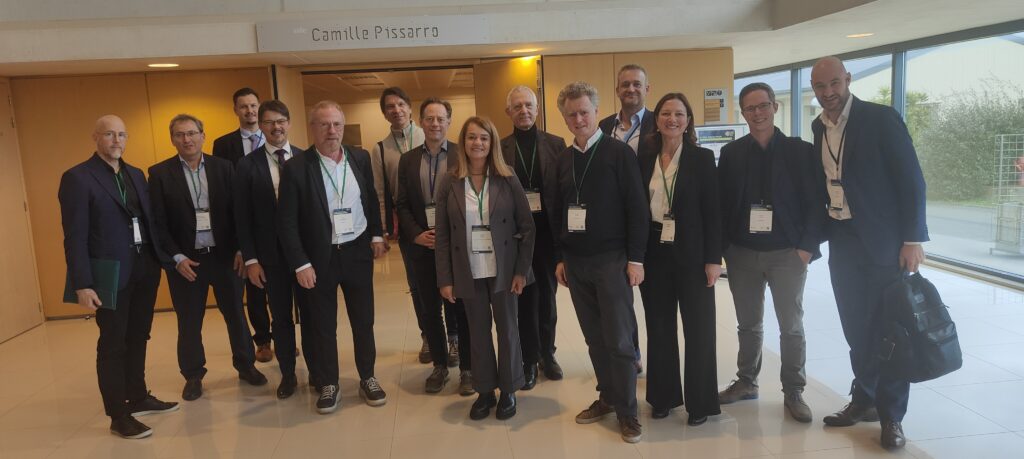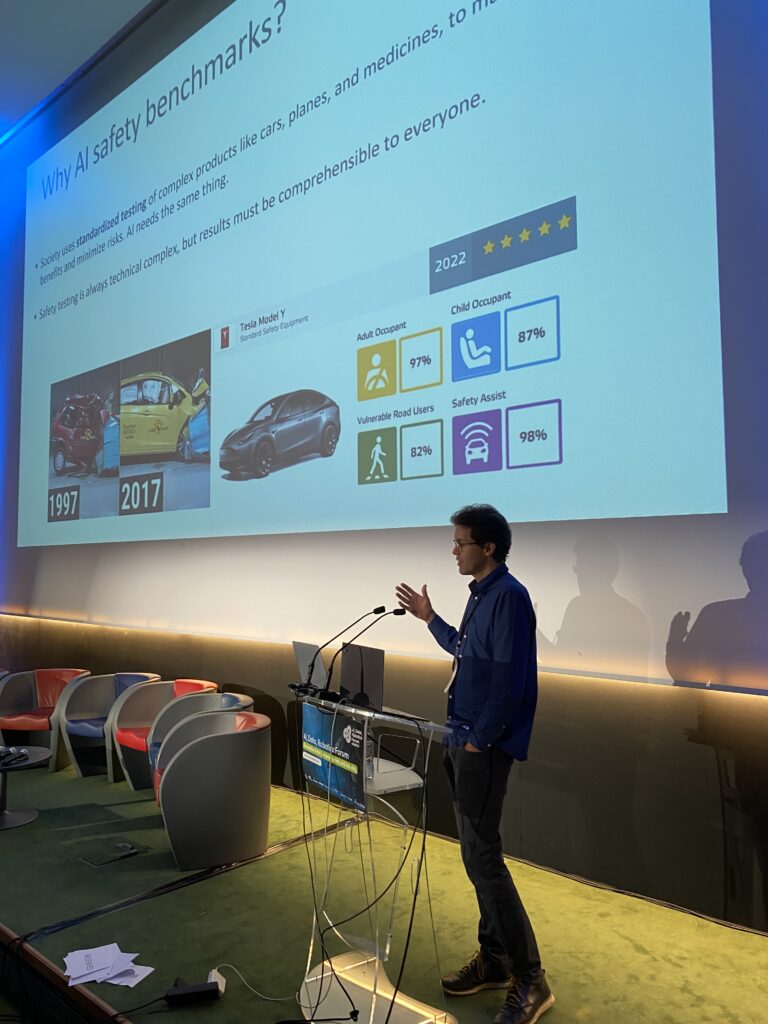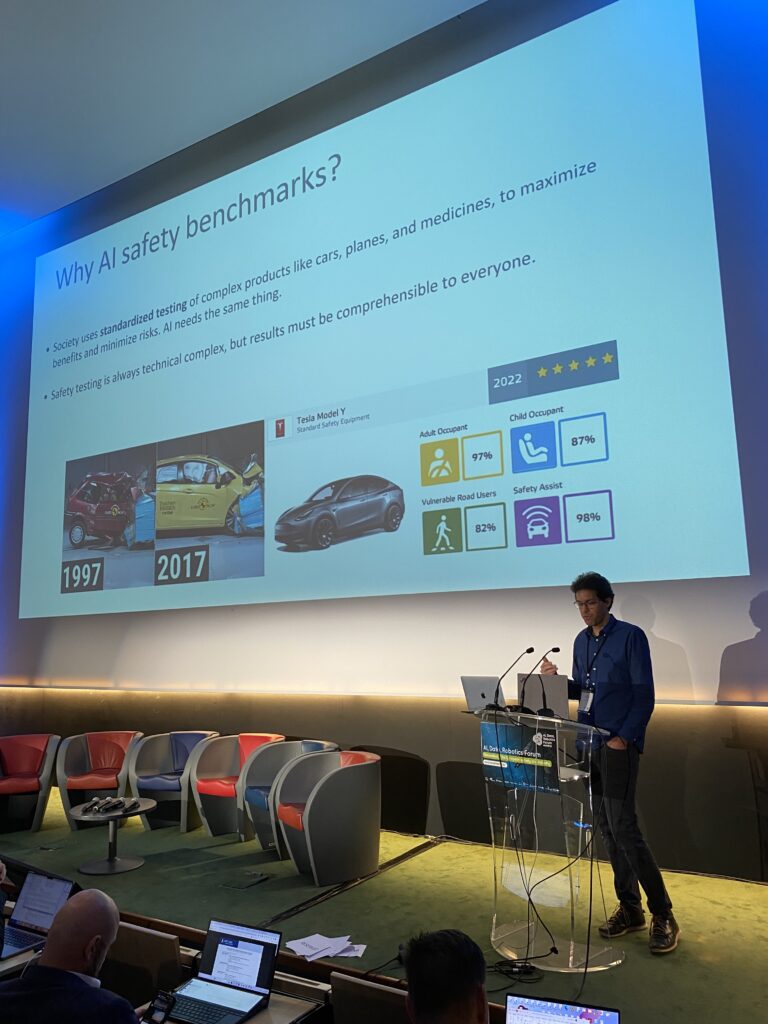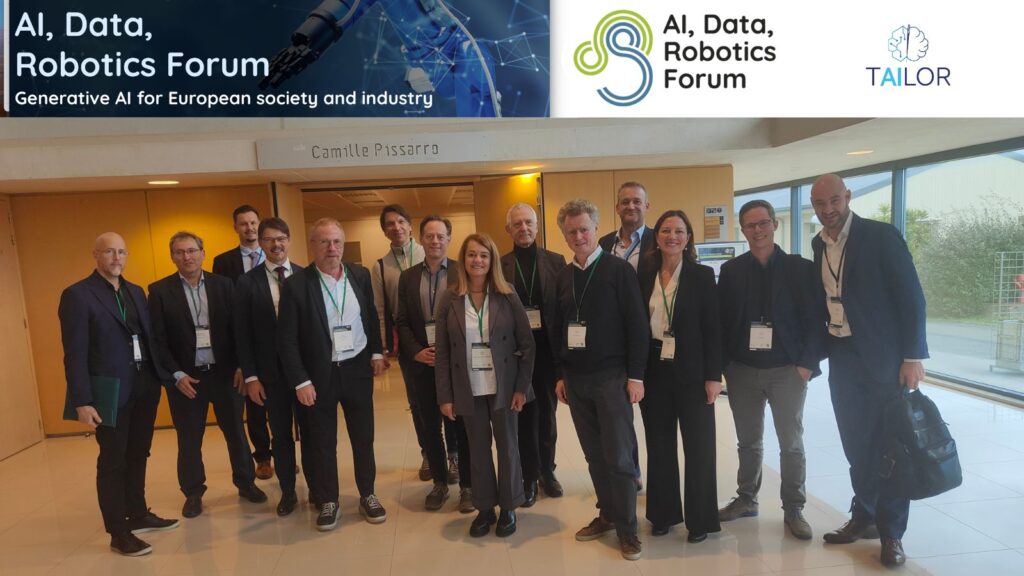The AI, Data, Robotics Forum 2023 (ADRF) took place at the Inria headquarters, Le Chesnay-Rocquencourt, near Versailles (France), on November 8th and 9th this year.
The ADRF, with its extensive coverage of various topics, particularly focused on ‘European Generative AI for European society and industry’ in its latest edition. Sponsored by the TAILOR project through the Connectivity Fund, the event explored the transformative potential of this technology. It delved into the impact of Foundation Models, including Dalle-e and MidJourney, in generating images from text, and ChatGPT built on GPTx LLMs. These advancements, having reached a level of maturity, were publicly released, marking a crucial coming-of-age moment for the industry.
Notably, the TAILOR scientists gave some insightful contributions to the Forum. Among other contributions, Freek Bomhof (Tu/e) and Fredrik Heintz (LiU) participating in the panel of Public release of the Adra Strategic Research, Innovation, and Deployment Agenda (SRIDA) Implementation plan for 2025-2027, and with other TAILOR scientists they participated in the Generative AI workshop.
The workshop consisted of two parts and it was chaired by Stefan Leijnen, Professor in Artificial Intelligence & Head of EU relations at AiNed. The aim of the workshop was on initiate a number of key initiatives, task forces, and/or policy declarations to make sure that Europe will become a leading player in generative AI. This includes fostering world-class research and development of large generative models, but also the legal framework to allow this. This requires us to bring together current initiatives, leading developers and companies, key academics, policy makers, and stakeholders.
Stefan Leijnen gave some comments on the event:
The AI, Data & Robotics Forum organised on November 8-9 in Versailles brought together leading companies, key academics, policy makers, and other stakeholders from the European generative AI community to discuss what Europe needs to do to become a leading player in generative AI. Fostering world-class research and development of large generative models such as large-language models requires a focused and interlinked effort on research, innovation and deployment. Developments in this field are moving very fast and Europe needs to step up and act in order to prevent an insurmountable innovation gap with non-EU technology providers. Several ideas were presented and discussed such as joining forces with national initiatives, a European challenge for startups in foundation models and a European Moonshot for generative AI.

In the picture: participants of the 1st part of the Generative AI workshop
In the second part of the workshop, Joaquin Vanschoren, assistant professor of machine learning at TU/e and WP leader in TAILOR for Connectivity Fund, provided an interesting comparison between Generative AI tools and Car Safety, based on the model on NCAPS (https://www.euroncap.com/en). He added this comment after the event:
There was a lot of interest in coordinating activities toward assessing the safety of AI systems, to evaluate how much they can be trusted. In-depth discussions were held on how to systematically benchmark AI safety according to a wide range of criteria, in addition to model auditing and security testing. Follow-up meetings are being planned in the coming months to take concrete steps in these directions.


In the picture: Joaquin Vanschoren presenting at the 2nd part of Generative AI workshop
Stay tuned for further updates on TAILOR’s contributions to the debate on Generative AI in Europe!
